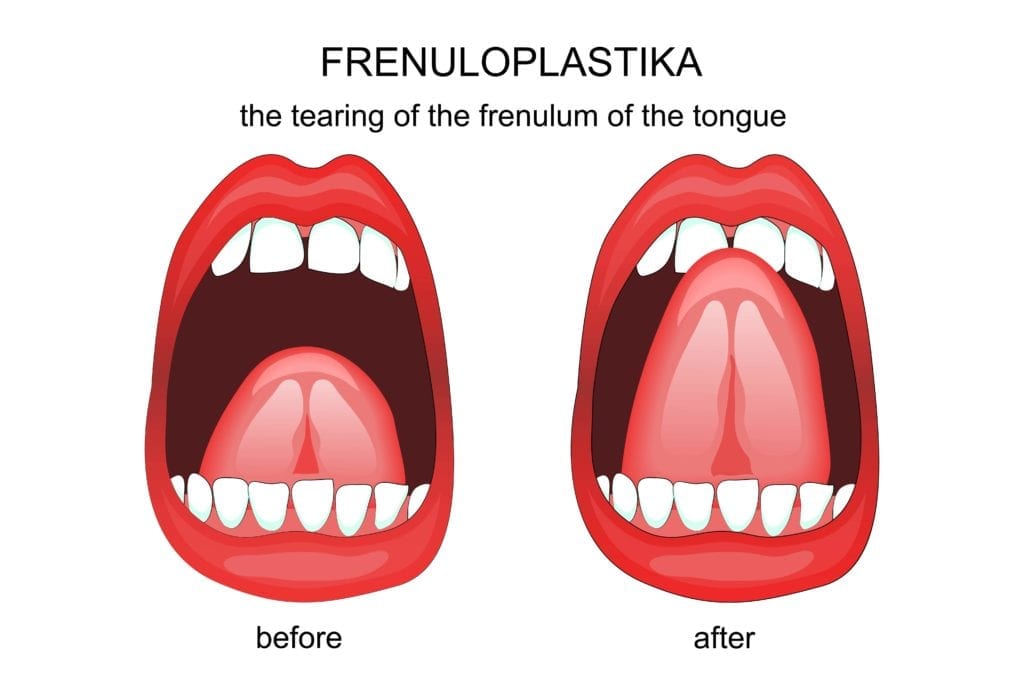Around 5% of infants, mainly boys, have a condition known as ankyloglossia. More commonly referred to as “tongue tie”, this condition occurs when the lingual frenum under the tongue is too short and restricts natural tongue movement. The lingual frenum is the connective tissue responsible for holding the tongue to the bottom of the mouth. In addition to the lingual frenum, there is another oral frenum.

The other oral frenum is known as the labial frenum and it is the connective tissue that holds the upper lip to the gums above the front teeth. When the labial frenum is too short, it can cause a condition known as lip tie, which restricts the movement of the upper lip and makes it difficult to properly clean the teeth and gums. Both lingual and labial frenums can impair speech, but labial frenums can also increase the risk of tooth decay and gum disease.
Because of this, pediatric dentists generally recommend peforming a frenectomy to release the binding tissue. A frenectomy is performed by snipping the lingual or labial frenum using surgical scissors, a scalpel, or a cauterizing instrument. The entire procedure is quick and takes no longer than 15 minutes. Some children with lip or tongue ties may not need a frenectomy, however here are some signs that your child may need one:
Problems Eating
When your child has a lingual frenum that is too short this can make it difficult to swallow properly. In infants, this can make breastfeeding difficult for the child and possibly painful for the mother. If the tongue tie is severe enough to prevent the child from breastfeeding, then a frenectomy may be performed as a newborn before leaving the hospital.

Speech Impediments
Tongue movements are extremely important for proper speech and a tongue with restricted movement can cause a variety of speech impediments, like lisps, to develop. While the upper lip is not as important for speech as the tongue, it too plays a role in proper speech and can have negative effects if the labial frenum is too short.
Gap Between the Upper Front Teeth
When the labial frenum is too short, it is also tight. A tight labial frenum often results in a gap between the two front teeth. In most cases, gaps between the teeth are only a cosmetic problem, however they can affect the alignment of the surrounding teeth.
Mouth Breathing
If your child sleeps with their mouth open, this is another sign that they may need a frenectomy. Mouth breathing occurs when the mouth is unable to close properly and one cause is from a labial frenum that is too tight. Not only does this prevent your child from breathing through their nose, but it can also lead to problems such as an open bite.
Gum Recession
Another problem that can occur as a result of a short labial frenum is gum recession. This occurs because the short labial frenum is constantly pulling on the gum tissue, which can eventually cause them to pull away from the teeth. Besides making your child’s teeth look larger than normal, gum recession can also increase their risk of developing gum disease.





